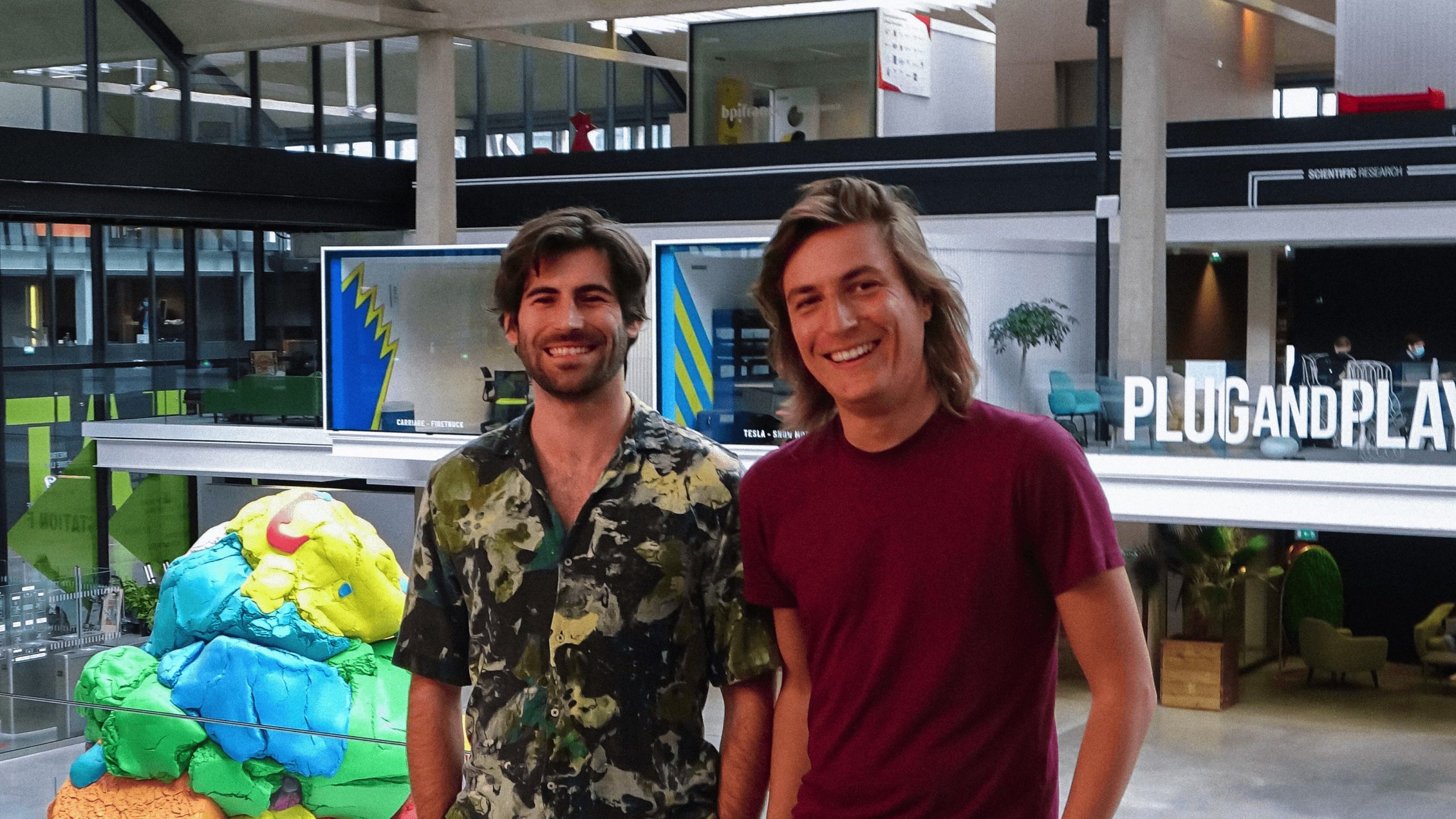France currently has 900 MRI machines (Magnetic Resonance Imaging). However, you often need to wait several months to get an appointment. Chipiron intends to address this thorny global public health issue.
The two cofounders met in 2020 as a result of the “Entrepreneur First” program on Station F, the French campus for startups. Evan Kervella, engineer, and Dimitri Labat, physicist, who is specialized in superconducting quantum materials, refined their project over the three months of the program. As most of Evan Kervella’s family worked in the medical sector, he quickly got the idea of working on one of the problems they faced on a daily basis: the lack of access to MRIs. “MRI machines are currently the best imaging technology available. They are versatile, allow you to see lots of things with excellent contrast, but are extremely expensive (usually in the region of €1 million) and very big, and maintaining them is complex,” Dimitri Labat, Cofounder and CTO of Chipiron pointed out.
Evan Kervella and Dimitri Labat are working together to create the world’s first viable ultra-low field MRI with real diagnostic power. Chipiron hopes to market its first lightweight, portable MRI machine by the end of 2024.
“Our mission is to make MRI as common and simple as a blood test, thus improving prevention and the availability of large-scale medical imaging,” Evan Kervella, CEO, and Dimitri Labat, CTO of Chipiron.
As this technology became widespread in France and worldwide over the last 40 years, experts have continuously increased the magnetic fields of the machines, with the idea that this would automatically lead to improved image quality. Chipiron chose to do the complete opposite. The company has been working with magnetic fields that are 1,000 times weaker than the machines used in hospitals, while providing a signal of equal quality by means of SQUID (Superconducting QUantum Interference Device) a new sensor technology. “This antenna is extremely sensitive, even at low field, and maintains good image quality,” said Dimitri Labat, Cofounder and CTO of Chipiron.
The machine being developed will be the size of a washing machine, it will be mobile and on wheels and will cost no more than €200,000 or €300,000. It will therefore be suitable for ambulances or medical offices in town for example.
The startup addresses primarily, but not only, trauma issues. “Our solution would free up emergency services and would allow triage, and over time, large-scale screening for certain diseases (breast cancer, prostate cancer, endometriosis, etc.),” Dimitri Labat, CTO, stated.
After a number of fundraising events during which a total of €1.8 million was raised, Chipiron is currently in the prototyping phase, in its laboratory in the 5th district of Paris.
Initial results from the antenna, which has already been manufactured, have been promising. The first laboratory prototype of the MRI machine is expected for autumn 2022.
Chipiron is one of the ten award-winning startups of the Next French Healthcare Program, a program created for innovative companies in Digital Health & Medtech keen to expand over the short and medium term, on the North American market. “We thus have the benefit of an initial understanding of the US market and a number of expert contacts,” Evan Kervella, CEO, concluded.



